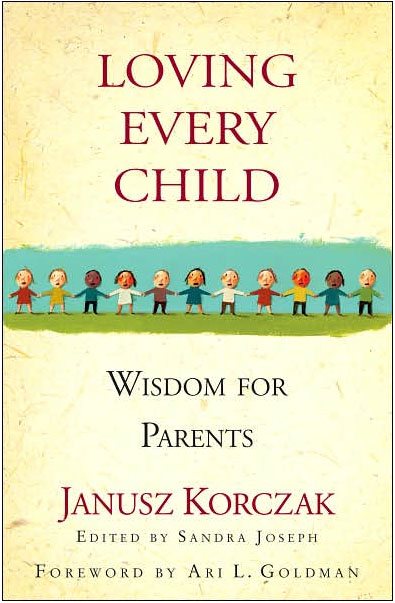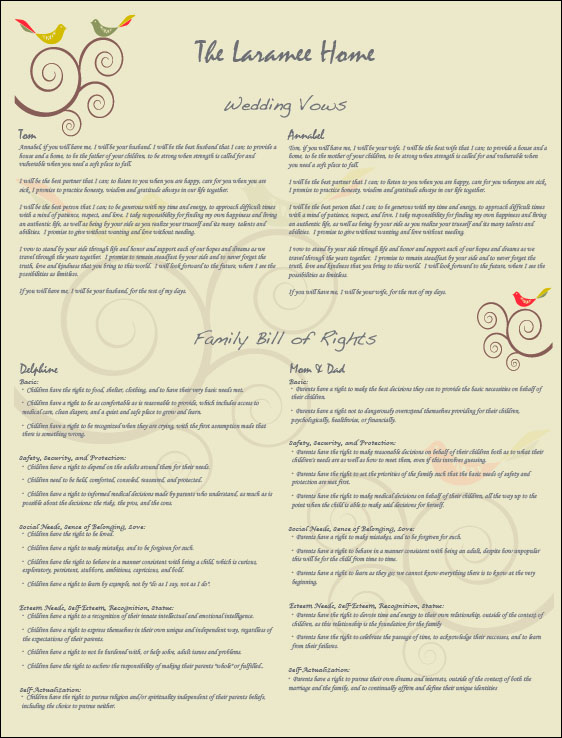Using a parlance suitable for these modern times: I think that babies need some sort of representation; a spokesperson to advocate for their rights, as when they're born, they're too young to advocate for themselves. This makes perfect sense to me, as everyone adult has rights, civil liberties, etc, and we enjoy them very much.
The closest I can come to ensuring such representation (aside from being one of the two do facto advocates) is to draft a Children's Bill of Rights ([C]BoR), which lists out the basic rights that all children should have.
During the writing of the BoR, I came across the book Loving Every Child ( LEC), written by Janusz Korczak, a Polish Holocaust hero. LEC is a superb compilation of advice for parents whose foundational principle is that parents should trust their instincts (instead of either getting confused by the nearly endless stream of advice from "experts" and/or losing confidence in their own ability to make the correct decisions). This book reinforced many of the ideas in the BoR and helped convince me I was on the right path.
Here are four brief excerpts from the book so you can get the idea of what the book is about:
Just remember: When is the proper time for a child to start walking? When she does. When should her teeth start cutting? When they do. How many hours should a baby sleep? As long as she needs to.
As a parent, you say: "But is the child clever?" If a parent anxiously asks this question right from the start, it will not take long before the parent will be placing demands on the child. Eat up your food, even if you are not hungry and feel nauseated; go to bed, even though you are not tired and will have to wait an hour to fall asleep. Because you have to, and because I want you to be healthy.
Just remember: Mentalities vary, and children can be steady or capricious, compliant or contrary, creative or imitative, witty or earnest, concrete or abstract; the memory can be exceptional or average; some are congenital despots while others have a wide range of interests.
How often do parents feel disappointment when children fail to live up to expectations, and how often to parents feel disappointment at every step of their development? Parents can be their harsh judges, rather than their counselors and consolers.
I also found out that a handful of other peole have had the same idea, which means I'm probably in good company.
The Children's Bill of Rights breaks down the set of rights into five distinct categories, based on Maslow’s hierarchy of needs:
- Basic (Physiological)
- Safety, Security, and Protection
- Social Needs, Sense of Belonging, Love
- Esteem Needs, Self-Esteem, Recognition, and Status
- Self-Actualization
I added in a complimentary set of Parent's Rights, which are essentially just analogous rules to mirror the children's rules (after all, as parents, we have certain rights and more importantly, certain responsibilites, that it's time well spent to consider them carefully). The dual sets of rights help reinforce the idea that we're all in this together, and that in essence, our family is a cooperative in which we all strive to be the best family we can be while also striving to be the best individuals we can be.
Since I intended this document to be a set of guiding principles for my family, my wedding vows are at the top, as the foundation of a healthy family is the relationship between the parents, which is represented in the document by the wedding vows.
Without further adieu, the Children's Bill of Rights (160kB pdf), presented as a work in progress.



 Feed
Feed





